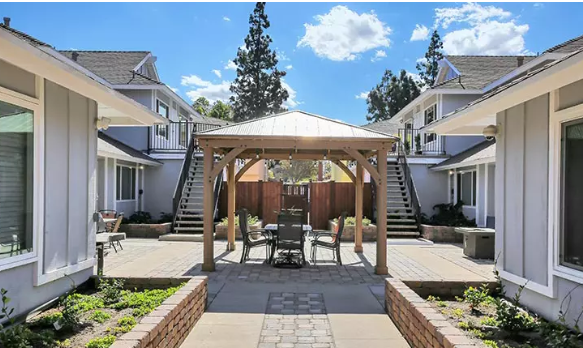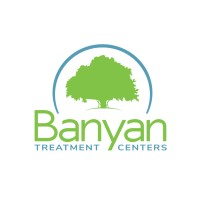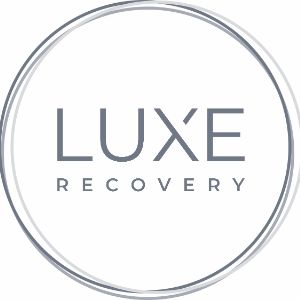Medical Treatment Centers for Substance Abuse and Mental Health
Introduction
Medical treatment centers play a critical role in addressing the complex and often co-occurring conditions of substance abuse and mental health disorders. These centers provide structured, evidence-based care in a clinical setting, often offering a blend of detoxification services, psychiatric evaluation, medication-assisted treatment (MAT), and therapeutic support. Unlike alternative or community-based models, medical treatment centers are typically staffed with licensed healthcare professionals including physicians, psychiatrists, nurses, and therapists. This ensures that patients receive holistic and scientifically grounded care, particularly when withdrawal symptoms or mental health crises require medical intervention.
Medical Treatment Center Services and Approaches
Medical treatment centers are uniquely equipped to handle the biological, psychological, and social dimensions of addiction and mental illness. One of the defining features of these centers is the presence of 24/7 medical oversight, which is especially important during the detox phase of treatment. Medical detoxification is often the first step in treatment, using medications to manage withdrawal symptoms from substances like alcohol, opioids, or benzodiazepines. For example, medications such as buprenorphine and methadone are commonly administered in opioid detox, while benzodiazepines may be used to ease alcohol withdrawal.
Beyond detox, these facilities also offer comprehensive mental health evaluations and individualized treatment planning. Psychiatric services are a cornerstone of many medical treatment centers, particularly for patients with dual diagnoses—those who experience both substance use and mental health disorders such as depression, anxiety, PTSD, or bipolar disorder. In such cases, coordinated care ensures that both conditions are treated concurrently, improving long-term recovery outcomes.
Integrated Therapies and Multidisciplinary Teams
A hallmark of medical treatment centers is the integration of medical, psychological, and behavioral therapies. Patients typically receive care from a multidisciplinary team composed of doctors, nurses, psychiatrists, psychologists, social workers, and addiction counselors. This collaboration allows for the design of personalized treatment plans that align with the patient’s health status, substance use history, and co-occurring conditions.
Treatment modalities commonly include individual therapy, group therapy, family therapy, and cognitive behavioral therapy (CBT), often complemented by dialectical behavior therapy (DBT) or trauma-informed care. Medication-assisted treatment (MAT) is another central component, particularly for opioid or alcohol use disorders. MAT combines behavioral therapies with FDA-approved medications to reduce cravings, normalize brain chemistry, and support abstinence.
Access, Coverage, and Special Populations
Medical treatment centers serve diverse populations and are often designed to accommodate various levels of care, from inpatient hospitalization and residential treatment to intensive outpatient programs (IOP) and partial hospitalization programs (PHP). This continuum of care allows patients to transition seamlessly as they stabilize and progress in their recovery.
Most accredited medical treatment centers accept private insurance, Medicaid, and Medicare, although the extent of coverage can vary depending on the plan and services rendered. The Mental Health Parity and Addiction Equity Act (MHPAEA) has helped ensure that behavioral health treatment receives the same level of coverage as physical health care, making medical treatment centers more accessible.
Top 10 Questions About Medical Treatment Centers for Substance Abuse and Mental Health
A medical treatment center is a facility that provides evidence-based, clinically supervised care for individuals with substance use disorders, mental health conditions, or both. These centers typically employ licensed physicians, psychiatrists, nurses, and therapists to provide comprehensive medical and psychological care. Medical detox, medication management, psychiatric evaluations, and 24/7 monitoring are standard services. In contrast, non-medical rehab programs may focus on peer support, counseling, or holistic methods such as yoga or faith-based recovery without clinical oversight. While both types of programs can be effective, medical centers are better equipped for individuals with severe addiction, mental health crises, or co-occurring disorders that require pharmacological or intensive medical care.
Medical treatment centers offer a wide range of services, including medically supervised detoxification, medication-assisted treatment (MAT), psychiatric evaluations, individual and group therapy, cognitive behavioral therapy (CBT), and 24-hour nursing care. Many centers also offer case management, nutrition support, and aftercare planning. For example, a patient struggling with opioid addiction might undergo MAT using buprenorphine, while simultaneously receiving therapy for trauma-related PTSD. This comprehensive approach ensures that both the physiological and psychological components of recovery are addressed under one roof.
Medical treatment centers are specifically equipped to treat dual diagnosis—when a patient has both a mental health disorder (like depression or bipolar disorder) and a substance use disorder. These conditions often influence one another, and treatment must address both simultaneously for long-term success. Integrated care in these centers may include psychiatric medication, therapy sessions targeting both disorders, and coordinated treatment teams. For example, someone with alcohol dependency and generalized anxiety disorder might receive anti-anxiety medication, engage in CBT, and work with both an addiction specialist and a mental health counselor to align treatment goals.
Medications commonly used in medical treatment centers include buprenorphine (Suboxone), methadone, and naltrexone for opioid use disorder; disulfiram and acamprosate for alcohol dependency; and SSRIs, antipsychotics, or mood stabilizers for co-occurring mental health issues. These medications are FDA-approved and administered under medical supervision, ensuring safety and proper dosage. For example, Suboxone is often used in opioid detox to reduce cravings and withdrawal symptoms, and it’s considered a safe and effective option when managed appropriately within a licensed facility.
Yes, many medical treatment centers offer both inpatient (residential) and outpatient programs, providing flexibility depending on a patient’s needs and severity of symptoms. Inpatient care is typically recommended for individuals requiring intensive supervision, detoxification, or those without a stable home environment. Outpatient care—such as partial hospitalization programs (PHP) or intensive outpatient programs (IOP)—allows patients to live at home while attending structured therapy and medical appointments. This dual offering allows for a continuum of care, supporting patients through different stages of recovery.
Many medical treatment centers accept private insurance, Medicaid, and Medicare, depending on the facility and state regulations. Coverage often includes detox services, inpatient stays, therapy, medication management, and outpatient programs, although prior authorization may be required. Patients should contact their insurance provider or the treatment center’s intake team to verify specific benefits. For instance, a Medicaid recipient may qualify for full coverage of both MAT and outpatient counseling at a state-funded medical rehab facility.
Staff at medical treatment centers typically include board-certified physicians, psychiatrists, registered nurses (RNs), licensed clinical social workers (LCSWs), licensed professional counselors (LPCs), and addiction medicine specialists. Support staff may include case managers, peer recovery coaches, and mental health technicians. These professionals bring multidisciplinary expertise, ensuring a well-rounded treatment approach. For example, a psychiatrist might oversee medication while a licensed therapist provides trauma-informed care, and a nurse monitors physical health during detoxification.
Treatment duration varies depending on the individual's diagnosis, severity, and progress. Acute medical detox may last 3–10 days, while full residential treatment programs typically range from 30 to 90 days. Outpatient programs can last several weeks to several months. Some facilities offer extended care or step-down programs to ensure continuity. For instance, a patient might start with 30 days of inpatient care followed by 60 days of IOP to support reintegration into daily life while continuing treatment.
Family involvement is often encouraged in medical treatment centers, as it can significantly improve recovery outcomes. Centers may offer family therapy sessions, educational workshops, or family weekends designed to strengthen communication, address enabling behaviors, and build healthy support systems. For example, a family therapy session might help a parent understand how to support their adult child without enabling substance use, or teach family members how to cope with the mental health challenges a loved one faces.
To find a reputable medical treatment center, start by checking for accreditation from bodies such as The Joint Commission or CARF (Commission on Accreditation of Rehabilitation Facilities). These accreditations ensure that a center meets high standards of care. Resources such as SAMHSA’s treatment locator (findtreatment.gov), Psychology Today’s therapist directory, or your insurance provider’s directory can also help identify facilities in your area. It’s important to research reviews, visit the center if possible, and ask about staff credentials, treatment methods, and post-treatment support.
Conclusion
Medical treatment centers offer a comprehensive, science-backed approach to treating substance abuse and mental health disorders. With their ability to provide intensive medical supervision, evidence-based therapies, and integrated care for dual diagnoses, these centers are often the most appropriate choice for individuals with moderate to severe conditions. Their multidisciplinary teams and structured environments help patients detox safely, manage psychiatric symptoms, and build the foundation for lasting recovery. As access to care continues to expand through legislation and telehealth, medical treatment centers remain a cornerstone in the continuum of behavioral healthcare services.
Sources
- Substance Abuse and Mental Health Services Administration (SAMHSA).
- National Institute on Drug Abuse (NIDA).
- American Society of Addiction Medicine (ASAM).
- National Alliance on Mental Illness (NAMI).







-svg.jpg)







